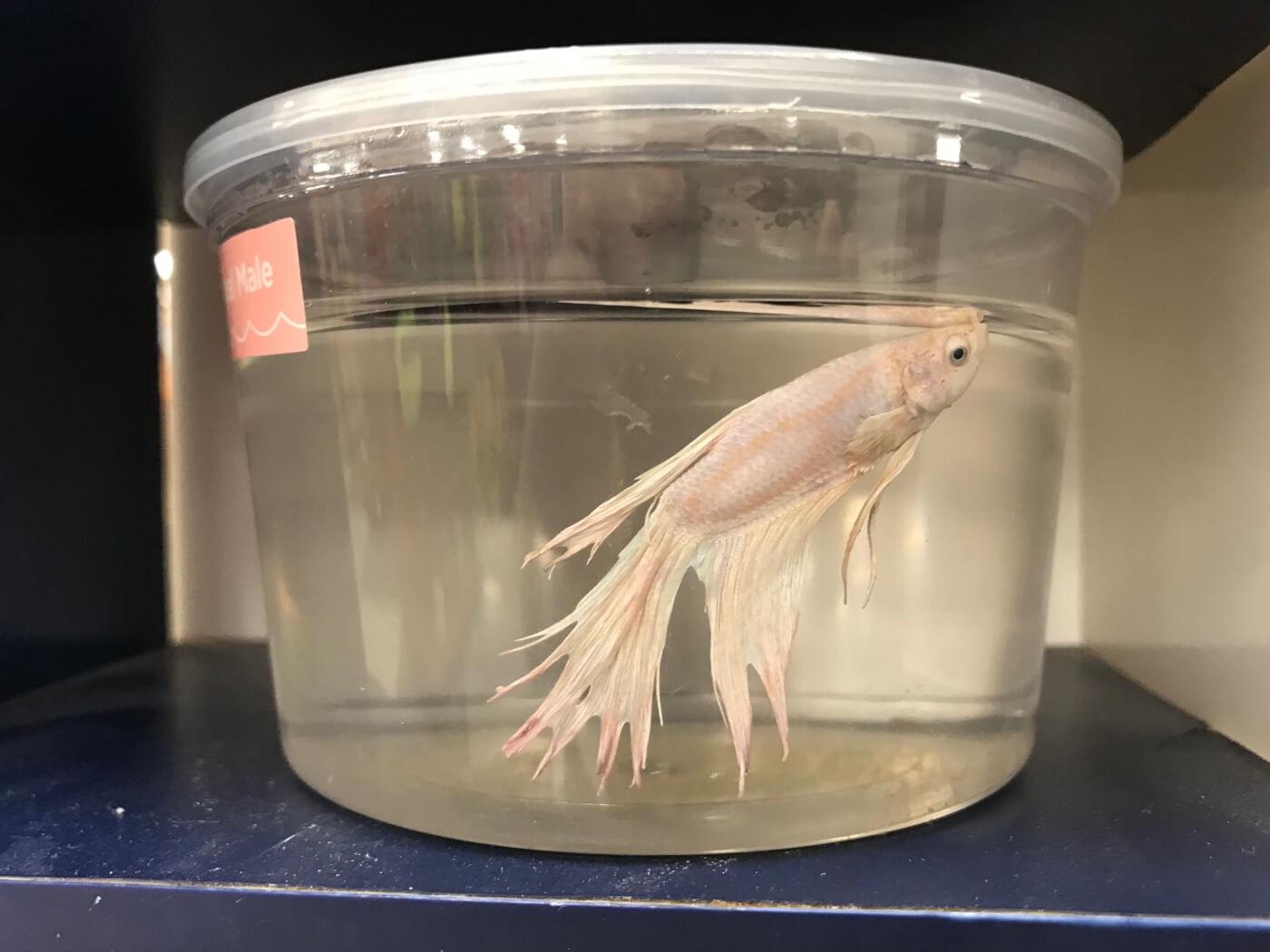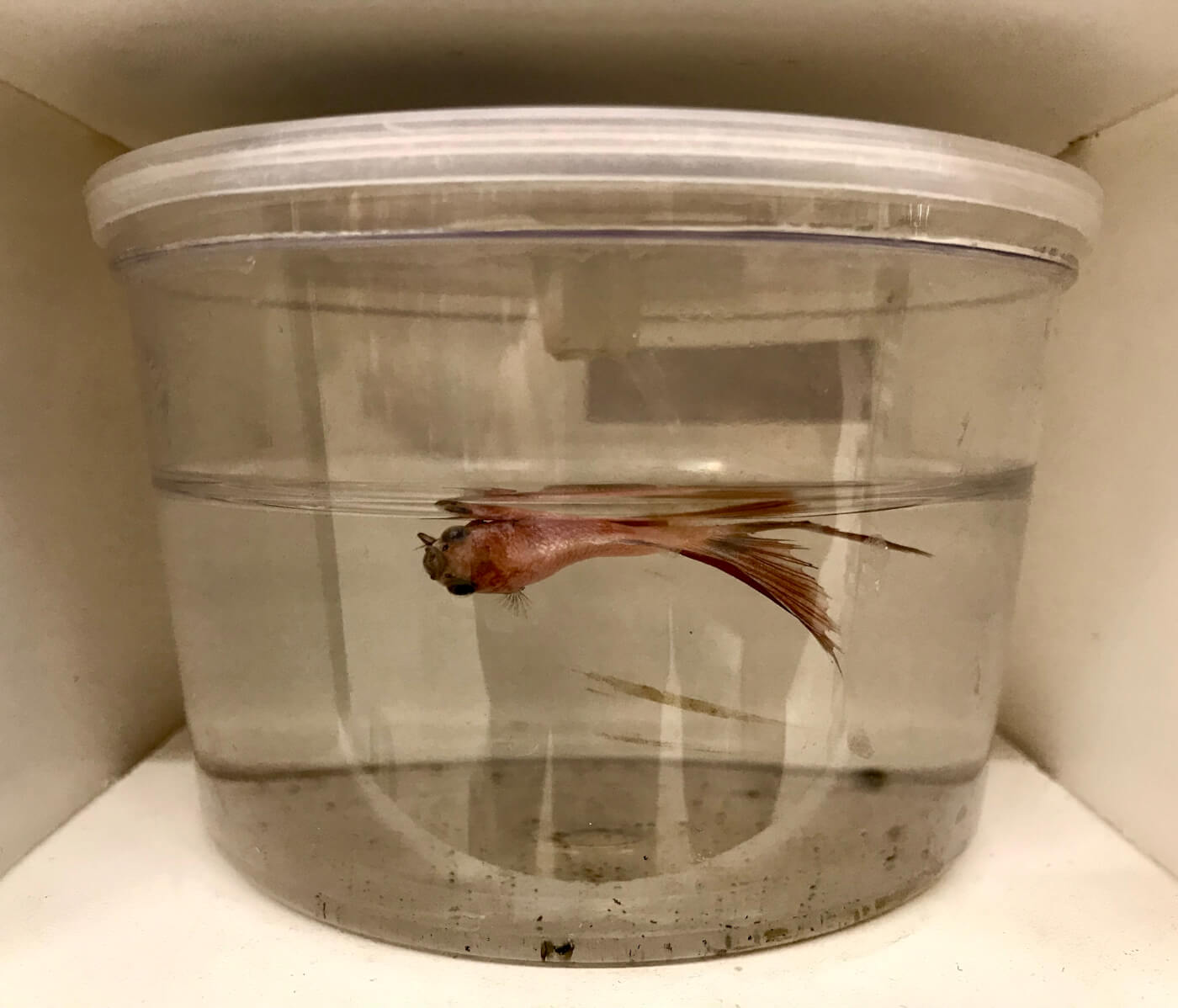Betta fish, also known as Siamese fighting fish, are a popular pet fish that can be found in many pet stores. However, it’s not uncommon to see them being sold in small cups, which raises the question: why are betta fish sold in cups?
One reason is that betta fish are territorial and aggressive towards other fish, so keeping them in individual cups reduces the risk of fighting and injury. Additionally, cups are a convenient way to transport and display the fish, making them easily accessible to potential buyers. However, there are also concerns about the welfare of the fish in such small containers and the necessity of providing them with proper care and living conditions. Let’s explore this topic further and uncover the reasons behind the use of cups for betta fish sales.
Betta fish are sold in cups for convenience and easy transportation. It is also a cost-effective method for pet stores to display and sell betta fish. However, this practice can be harmful to the fish as they require proper filtration and space to thrive. It is important to provide a suitable environment for betta fish to ensure their health and well-being.

Why Are Betta Fish Sold in Cups?
Betta fish, also known as Siamese fighting fish, are a popular choice for those looking for a pet fish. They are famous for their vibrant colors, unique personalities, and low maintenance needs. However, it is common to find these beautiful creatures being sold in cups in pet stores, which may raise some questions. In this article, we will explore the reasons behind this practice and whether it is beneficial or harmful to the fish.
Cost and Convenience
One of the main reasons why betta fish are sold in cups is cost and convenience. Keeping fish in individual cups is a cheap and easy way for pet stores to display and transport them. The cups are lightweight, stackable, and take up minimal space. This allows stores to sell a large number of fish without needing a lot of aquarium space or specialized equipment. Additionally, cups are easy to clean, which reduces labor costs and time.
However, this cost-effective solution can have negative consequences for the fish. Cups are often too small for betta fish to live comfortably, and they don’t provide enough space for the fish to swim and exercise. Lack of proper filtration and heating can also have a detrimental impact on the fish’s health. Betta fish are tropical fish and require warm water to thrive. They also produce waste that can accumulate quickly in a small container, leading to poor water quality.
Marketing Strategy
Another reason for selling betta fish in cups is that it is a marketing strategy. Pet stores use the bright and colorful fish to attract customers, and the cups make it easy for customers to take them home. Most people who buy betta fish in cups don’t have an aquarium or knowledge on how to care for them properly. This leads to improper care and a higher chance of the fish dying prematurely.
Pet stores also tend to use misleading information when selling betta fish. They claim that betta fish can live in small containers and don’t need a filter or heater. This is not true, and it leads to a lot of misunderstanding about betta fish care. In reality, betta fish require at least a five-gallon tank with a filter and heater to live a healthy life.
Betta Fish Care
If you are planning to buy a betta fish, it is essential to know how to care for them properly. Betta fish require a tank that is at least five gallons, with a filter and heater to maintain a stable environment. The tank should also have hiding spots, plants, and decorations to provide the fish with stimulation and a sense of security. Bettas are carnivorous and require a varied diet that includes high-quality pellets, frozen or live food such as brine shrimp or bloodworms.
It is also important to monitor the water quality regularly and perform water changes as needed. Betta fish are sensitive to poor water conditions, which can lead to illness and disease. Avoid overfeeding your betta fish, as it can lead to obesity and health problems. Lastly, avoid keeping betta fish with other fish, as they are aggressive and territorial.
Benefits of Proper Betta Fish Care
Providing proper care for your betta fish has numerous benefits. It ensures that your fish lives a long and healthy life, displaying its vibrant colors and unique personality. A healthy betta fish is active, curious, and playful. It also reduces the risk of disease and illness, which can be expensive to treat. Proper betta fish care also provides a relaxing and enjoyable hobby, with the satisfaction of watching your fish thrive in a safe and comfortable environment.
Betta Fish in Cups vs. Betta Fish in Tanks
There is no doubt that betta fish kept in tanks are healthier and happier than those kept in cups. Tanks provide the necessary space, filtration, and heating to maintain a stable environment. They also provide a better quality of life, with hiding spots, plants, and decorations to simulate a natural habitat. In contrast, cups provide a cramped and stressful environment for the fish, leading to poor health and a shorter lifespan.
If you are considering buying a betta fish, it is essential to provide them with the best possible care. This means investing in a proper tank with a filter and heater, and providing them with a varied and nutritious diet. Avoid buying betta fish in cups from pet stores, as they are more likely to be sick or stressed. Choose a reputable breeder or pet store that provides healthy and well-cared-for betta fish.
In conclusion, betta fish are sold in cups due to cost and convenience and as a marketing strategy. However, this practice can have negative consequences for the fish’s health and well-being. By providing proper care and a suitable environment, betta fish can live a long and happy life. Avoid buying betta fish in cups and opt for a proper tank with the necessary equipment to provide the best possible care for your fish.
Frequently Asked Questions
Why are Betta Fish Sold in Cups?
Betta fish are often sold in cups due to convenience and cost-effectiveness. It is easier and cheaper for pet stores to keep betta fish in small cups rather than larger tanks with filtration systems. Additionally, betta fish are solitary creatures that can become aggressive towards other fish, so keeping them in individual cups prevents them from attacking each other.
However, keeping betta fish in cups for extended periods of time can be detrimental to their health. The cups are often too small and do not provide adequate space for the fish to swim and explore. The lack of filtration and stagnant water can also lead to poor water quality, which can cause health problems for the fish.
Is it Cruel to Keep Betta Fish in Cups?
Keeping betta fish in cups for extended periods of time can be considered cruel as it does not provide them with adequate space and conditions to thrive. The small cups do not allow for proper swimming and exploration, which can lead to stress and boredom for the fish. Additionally, the lack of filtration and stagnant water can lead to health problems such as fin rot and bacterial infections.
However, it is important to note that not all betta fish are kept in cups permanently. Many pet stores use cups as a temporary holding area for betta fish before they are sold or transferred to larger tanks with proper filtration and space. It is important for pet owners to provide adequate space and conditions for their betta fish to ensure their health and well-being.
How Can I Ensure the Health of my Betta Fish in a Cup?
If you choose to keep your betta fish in a cup, there are several things you can do to ensure their health. Firstly, make sure to change the water regularly to prevent the build-up of harmful toxins and bacteria. It is also important to provide your betta fish with a proper diet and to avoid overfeeding them.
In addition, you can provide your betta fish with enrichment activities such as placing objects in the cup for them to explore and swim around. Finally, it is important to monitor your betta fish for any signs of illness or distress and to seek veterinary care if necessary.
Can Betta Fish Live in Community Tanks?
Betta fish are known for their aggressive nature and are often kept in individual tanks or cups. However, under certain conditions, betta fish can live in community tanks with other fish. It is important to choose tankmates that are peaceful and compatible with betta fish, such as small schooling fish and bottom feeders.
It is also important to provide adequate space and hiding places for all fish in the tank. Additionally, adding live plants to the tank can provide natural filtration and create a more natural environment for the fish. It is important to monitor the behavior of all fish in the tank and to separate any fish that become aggressive or show signs of stress.
What Size Tank is Best for Betta Fish?
Betta fish are often kept in small tanks or cups, but they actually prefer larger tanks with plenty of space to swim and explore. A tank size of at least 5 gallons is recommended for a single betta fish, but larger tanks are even better. A larger tank allows for more stable water conditions and can provide more opportunities for enrichment activities.
Additionally, it is important to provide proper filtration and to cycle the tank before adding the betta fish. Betta fish prefer water temperatures between 76 and 82 degrees Fahrenheit, so a heater may be necessary to maintain a consistent temperature. Providing hiding places and enrichment activities such as live plants and aquarium decorations can also enhance the betta fish’s environment and well-being.

Why Bettas Being Sold in These Cups is BAD
In conclusion, the practice of selling betta fish in cups has been in place for a long time, and there are several reasons for this. Firstly, it is a convenient way of transporting the fish from the breeders to the pet stores. Secondly, the cups are small enough to fit on store shelves, making them an easy product to display. Finally, betta fish are solitary creatures and can be aggressive towards other fish, so keeping them in individual cups can prevent fights and injuries.
However, it is important to note that keeping betta fish in cups for extended periods of time can have negative effects on their health and well-being. The small amount of water in the cups can quickly become polluted, leading to poor water quality and stress for the fish. It is recommended that betta fish be kept in larger tanks with proper filtration and heating to ensure their longevity.
In conclusion, while selling betta fish in cups may be convenient for the pet industry, it is not the best option for the health and happiness of the fish. It is important for pet owners to educate themselves on proper betta fish care and provide their pets with a suitable living environment.
